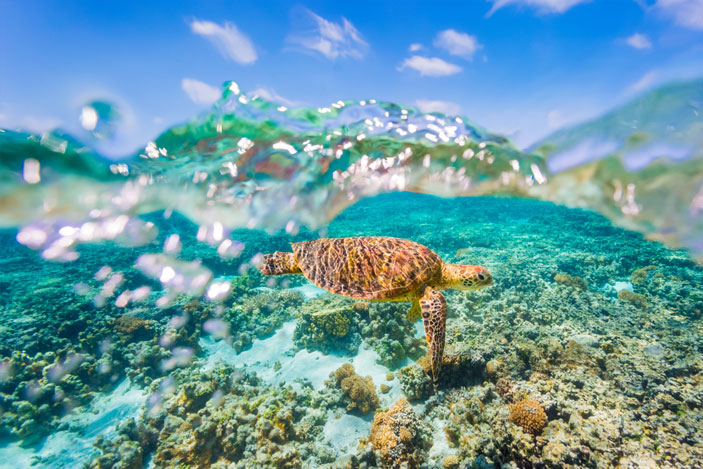Offshore coral nursery a first for Great Barrier Reef
REEF

LIVE coral fragments have been successfully collected and installed in the first offshore coral nursery being trialled on the Great Barrier Reef in a bid to regenerate damaged areas of the world’s largest reef.
The Reef Restoration Foundation has a permit from the Great Barrier Reef Marine Park Authority (GBRMPA) to establish a pilot research offshore coral nursery at Fitzroy Island, near Cairns in Tropical North Queensland.
Foundation Chief Executive Officer Stewart Christie said the not-for-profit social enterprise sought and obtained significant tourism industry and scientific support for the coral gardening and restoration research project, which will regenerate degraded coral reefs.
“We collected small amounts of healthy coral which, having survived the past two years of high temperatures, should be naturally more resilient to coral bleaching,” he said.
“This coral has been attached to six ‘coral tree’ frames in the offshore coral nursery at Fitzroy Island.”
Corals in offshore nurseries grow much faster allowing cuttings to be taken just six to 12 months later to be attached on reefs to grow new coral and regenerate damaged sections.
James Cook University Professor Damien Burrows said: “As coral cover across the Great Barrier Reef continues to decline, additional management approaches are required to assist the recovery of corals.”
Led by the Reef Restoration Foundation, the project has strong tourism industry support with funding from Fitzroy Island Resort, Cairns Dive Centre, the Association of Marine Park Tourism Operators (AMPTO) and Gempearl.
Researchers from James Cook University’s TropWATER and Reef Ecologic will be monitoring the performance of the coral nursery with support by volunteers from the Fitzroy Island Resort, Cairns Turtle Rehabilitation Centre, Cairns Dive Centre and other skilled individuals.
Mr Christie said the process adopted by Reef Restoration Foundation had been proven in other locations around the world including the Caribbean and Florida Keys.
GBRMPA Chairman Dr Russell Reichelt said there had been major climate change-driven impacts on the Great Barrier Reef over the past two years.
“GBRMPA’s Reef Blueprint launched this week highlights the importance of innovative approaches and new technologies to manage the Reef,” he said.
“It’s great to see this trial underway — while it’s still early days in this project, we look forward to seeing the results.”
Thoughts? Let us know in the comments below!
* Readers are encouraged to use their full details below to ensure comment legitimacy. Comments are the opinions of readers and do not represent the views of Newsport or its staff. Comments containing unlawful, obscene, defamatory or abusive material will not be published.
